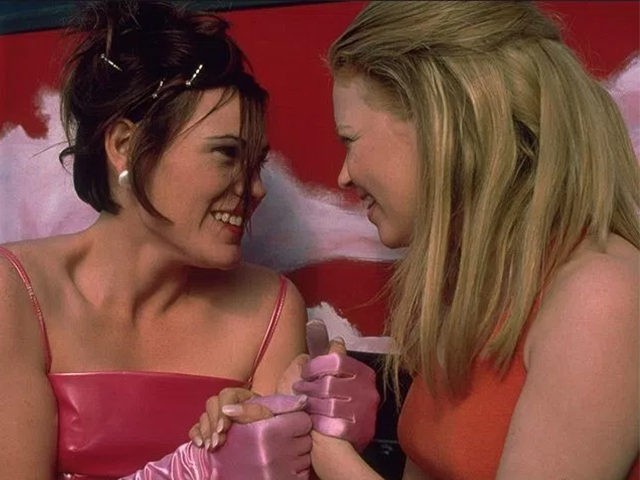#OscarsSoWhite isn’t over yet, says the hashtag’s creator April Reign.
When the nominations for the 89th Academy Awards were unveiled Tuesday morning, seven of the 20 acting nominations were for people of color, including a Best Actor nod for Denzel Washington (Fences), Best Actress recognition for Ruth Negga (Loving), Best Supporting Actor honors for Mahershala Ali (Moonlight) and Dev Patel (Lion), and Best Supporting Actress nods for Octavia Spencer (Hidden Figures), Viola Davis (Fences) and Naomie Harris (Moonlight).
In addition, the Best Documentary category includes three films about the black experience in America: Ava DuVernay’s 13th, Raoul Peck’s I Am Not Your Negro and Ezra Edelman’s OJ: Made in America. Cinematographer Bradford Young (Arrival) became the second black cinematographer to be recognized in his category, while Moonlight‘s Joi McMillon became the first black woman to be nominated for film editing, according to the Hollywood Reporter.
But Reign — whose #OscarsSoWhite hashtag led some celebrities like Will Smith and Michael Moore to boycott last year’s ceremony, and sparked a protest in Los Angeles led by the Rev. Al Sharpton — said Tuesday that the campaign for greater diversity in film is not yet over.
“One year does not make up for over 80 years of underrepresentation of all genders, sexual orientations, races, abilities and First Nation status,” she told the Los Angeles Times. “#OscarsSoWhite is about the inclusion of all marginalized communities, both in front of and behind the camera, throughout the entertainment industry.”
Reign elaborated in a statement to the Hollywood Reporter:
“While these films this year reflect the black experience, I’m still waiting for films that reflect the Latin experience, for a romantic comedy with two LGBTQ members, for a disabled or differently-abled superhero. We’ve actually seen a step back in respect to the Asian-American and Pacific Islander experience with movies like Ghost in the Shell or Tilda Swinton in Doctor Strange. So there’s still more work for #OscarsSoWhite. We haven’t gotten there yet, but today was another step in the right direction.”
The #OscarsSoWhite campaign divided Hollywood ahead of the Academy Awards last year — some celebrities like Viola Davis and George Clooney encouraged reform of the Academy of Motion Picture Arts and Sciences to increase the diversity of its membership, while industry veterans like Steven Spielberg and Clint Eastwood maintained that there was no inherent racism in the film Academy’s selections.
Hours before the ceremony, the Rev. Al Sharpton and his National Action Network led a protest outside the security perimeter of the Dolby Theater in Hollywood, where he said the industry was “out of time” to address its “systemic” problem of exclusion.
“They claim to be liberal in Hollywood,” he told reporters at the protest. “You couldn’t tell from their selections the past two years.”
Since the controversy erupted, big studios and the Academy itself have made a push to increase diversity both in front of and behind the camera.
In June, the Academy issued a record 683 invitations to new members in an effort to include more people of color, and women. In January, AMPAS approved a rule change that granted members voting rights for ten years, rather than for life, that was designed to allow younger, “active” filmmakers and actors a larger say in the nomination process, but was seen by critics and some inside the Academy as an attempt to exclude the selections of older, white members.
“The Academy is going to lead and not wait for the industry to catch up,” AMPAS president Cheryl Boone Isaacs said in January while announcing the rule changes. “These new measures regarding governance and voting will have an immediate impact and begin the process of significantly changing our membership composition.”
In March, the Hollywood Reporter noted that studios were focusing their efforts on casting more women and people of color in major projects, specifically in response to the #OscarsSoWhite controversy.
Follow Daniel Nussbaum on Twitter: @dznussbaum

COMMENTS
Please let us know if you're having issues with commenting.